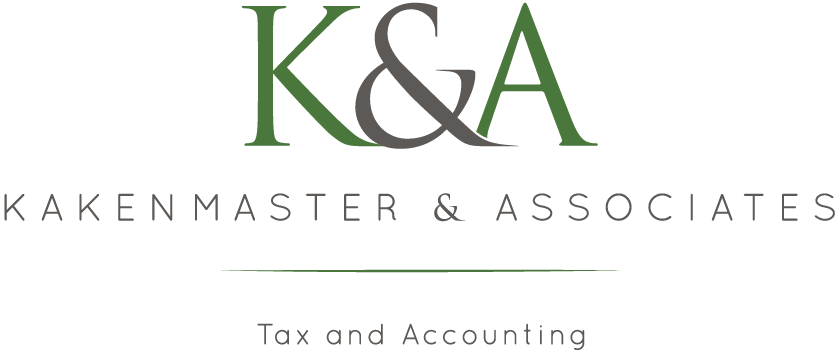The Coronavirus Aid, Relief, and Economic Security Act (CARES) that was passed on March 27, 2020, included many tax provisions that will impact your taxes for 2020. Some of these provisions affect the rules for retirement accounts such as IRAs, 401(k)s, and 403(b)s from January through December 2020.
Required Minimum Distributions (RMDs):
The CARES Act waived RMDs from IRAs and other employee retirement plans for 2020. Distributions made between January - June of 2020 were also able to be redeposited without penalty until August 31, 2020. In addition, the Setting Every Community Up for Retirement Enhancement Act (SECURE) which was signed into law in December 2019, extended the age for RMDs from 70.5 to 72 years old. This legislation applies to IRAs, 401(k)s, 403(b)s, and 457 for government employers and the Federal Thrift Savings Plan. Please note that RMDs from a traditional IRA are calculated by dividing the total December 31 portfolio balance by the life expectancy factor listed for their age in the IRS Publication, 590-B.
Distribution for those younger than 59.5 years:
The 10% penalty is waived for any funds withdrawn up to $100,000 of coronavirus related distributions in 2020. The laws give taxpayers the option to spread the federal taxes on these distributions over three years beginning in the year of the withdrawal. In addition, if you redeposit funds within the 3-year period, they will be treated as a rollover and will not be taxed. Any taxes paid on these redeposited funds can be recovered by filing an amended return. For 401(k) plans, eligible individuals were allowed to borrow up to the lesser of $100,000 or 100% of the account balance until September 23, 2020.
Qualifications for COVID-related distribution:
According to the IRS, you qualify as an individual to take advantage of these provisions if you are diagnosed with the virus SARS-CoV-2 or with coronavirus disease 2019 (COVID-19) by a test approved by the Centers for Disease Control and Prevention (CDC); your spouse or dependent is diagnosed with SARS-CoV-2 or with COVID19 by a test approved by the CDC; you experience adverse financial consequences as a result of being quarantined, being furloughed or laid off, or having work hours reduced due to SARS-CoV-2 or COVID-19; you experience adverse financial consequences as a result of being unable to work due to lack of child care due to SARS-CoV-2 or COVID-19; or you experience adverse financial consequences as a result of closing or reducing hours of a business that you own or operate due to SARS-CoV-2 or COVID-19.
Qualified Charitable Distributions (QCDs):
A qualified charitable distribution (QCD) allows individuals who are 70.5 years old or older to donate up to $100,000 in total to one or more charities directly from a traditional IRA. The QCD also reduces the required minimum distribution. Please note that even though the CARES Act increased the age for RMDs to 72 years old, the QCD is still available for those age 70.5 or younger. QCDs may help taxpayers avoid higher income tax brackets and prevent phaseouts of other tax deductions. This strategy helps taxpayers using the standard deduction.
2020 Contributions Amounts to Retirement Plans:
Traditional IRAs and Roth IRAs: The contribution level remains at $6,000, plus an additional $1,000 for those age 50 and up. Roth IRA contributions phase out at adjusted gross income (AGI) levels of $196,000 to $206,000 for couples, and $124,000 to $139,000 for individuals. For traditional IRAs, deductible contributions phase out at AGI levels of $104,000 to $124,000 for couples and $65,000 to $75,000 for individuals if they have a retirement plan at work. If one spouse is covered by a plan, the phaseout zone for deducting a contribution of the uncovered spouse starts at an AGI of $196,000 and ends at $206,000. There is no deduction phase out if you (and your spouse if married) are not covered by a retirement plan at work.
401(k) Plans: The maximum contribution is $19,500. For those born before 1971, an additional $6,500 can be contributed.
SIMPLE Plans: The maximum contribution is $13,500, plus an additional $3,000 for those age 50 and up.
Part-Time Employees: Typically, employees who had not worked at least 1,000 hours during the year couldn't participate in their employer's 401(k) plan. However, beginning in 2021, the SECURE Act now allows employees who worked at least 500 hours per year for at least three consecutive years to participate. The employee must have turned 21 years old by the end of the three-year period. The new law does not apply to collectively bargained employees.
529 Plans and Student Loan Repayment: If you took a distribution to pay for your child's education and the school closed due to COVID-19 issues, you can redeposit the funds back into the 529 account and not incur any taxes or penalties if it is redeposited within 60 days to the same beneficiary.
Under the CARES Act, employers can contribute up to $5,250 toward an employee's education expenses which now includes student loans until December 31, 2020, and the payment is excluded from the employee's income and payroll taxes. Currently, approximately eight percent of employers offer student loan repayment assistance. Ask your employer today.
FSAs, HSAs, and HRAs: The CARES Act allows for individuals to buy over-the-counter medicines with these pretax funds without the requirement of a doctor's prescription. Check your plan's website for more details.

